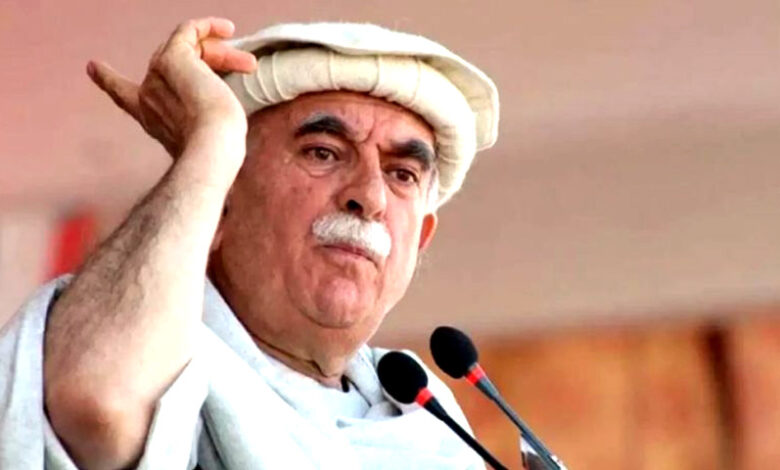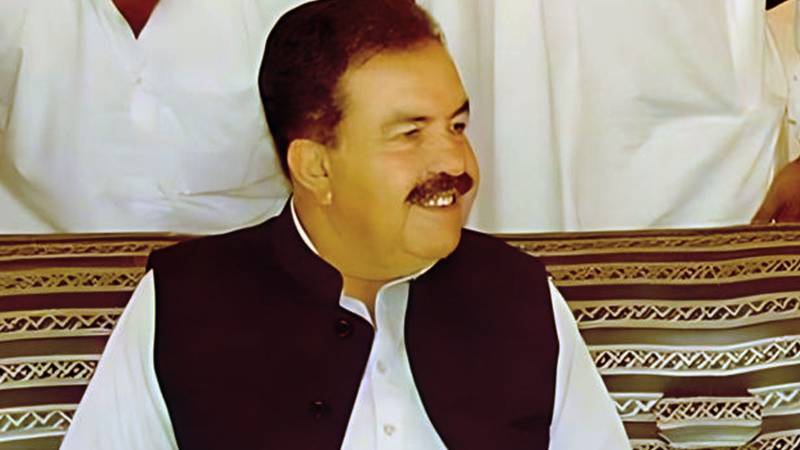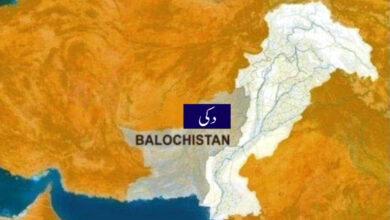Mahmoom Khan Achakzai Urges Unity and Action for Afghan-Pakistani Relations at Public Jirga in Pishin

Pishin:Mahmood Khan Achakzai, Chairman of Pashtoonkhwa Milli Awami Party (PMAP) and President of the Movement for the Protection of the Constitution of Pakistan, addressed a large public Jirga in Pishin. He emphasized the importance of freedom and self-determination, stressing that the struggle for one’s rights is a righteous cause, as recognized by religious scholars. In his speech, Achakzai condemned the ongoing conflicts in the region and called for serious efforts to prevent war and bloodshed in South Asia.
Achakzai advocated for a regional conference led by the United Nations (UN) Secretary-General, bringing together the rulers of Afghanistan and its neighboring countries. This conference, he proposed, should address mutual concerns, with the goal of forging a binding agreement to ensure mutual respect for the sovereignty, independence, and non-interference in the internal affairs of each nation. He also suggested that the Security Council of the UN should guarantee the terms of this agreement.
Discussing the issue of sovereignty, Achakzai stated that Pakistan’s independence and sovereignty are closely linked to Afghanistan’s sovereignty. He reminded the audience that Afghans’ understanding of freedom was inherited and not something to be taught by others. “The Afghan nation has preserved its independence throughout history, especially when foreign powers tried to colonize other parts of the Muslim world. The only two lands that resisted were Afghanistan and Turkey,” he added.
In his address, Achakzai also highlighted the importance of self-representation, stressing that the Pashtun people must strengthen their Jirgas (traditional assemblies) and use them as platforms to address everyday issues, disputes, and conflicts. He noted that the Pashtun people have lived on their ancestral land for thousands of years and have fought for it, often sacrificing their lives. He criticized the current situation where artificial barriers, such as the Durand Line, have divided the Pashtun people, but also called for unity and collective action.
Achakzai pointed out that Pashtuns have always been peace-loving, hospitable, and respectful of all human beings. He urged the community to continue promoting peace and cooperation with all other ethnicities, religions, and nations. “As a nation, we do not consider ourselves superior to others. We believe that the rights that belong to others should also belong to Pashtun children,” he said.
Addressing the growing tensions in Afghanistan, he condemned any plans for war and argued that the region cannot afford further conflict. Referring to the historical involvement of foreign powers in Afghanistan, including the Soviet Union and the United States, he criticized how Pashtuns and Afghans had been used as pawns in the global struggle against colonial powers, only to be blamed for the consequences later.
Achakzai also discussed economic issues affecting the Pashtun region, particularly the growing trade barriers imposed by Pakistan. He lamented the fact that Pashtuns, despite owning vast natural resources, such as land, forests, agriculture, and water, were facing economic hardship. He proposed that if Pashtuns empowered their Jirgas and institutionalized them into a representative assembly, they would have the ability to manage resources like water and construct dams to benefit the community, unlike the current political system, which he criticized for corruption.
Concluding his speech, Achakzai called on the leadership of the Pashtun Jirga, led by Nawab Muhammad Ayaz Khan Jogezai, to strengthen the assembly and transform it into a genuine platform for Pashtun rights and self-governance. He reflected on the colonial legacy, acknowledging that the British colonial system had provided some infrastructure, but emphasized that Pashtuns had always fought for their rights, even under foreign rule.
Achakzai concluded by thanking the people of Pishin, the religious scholars, and all the dignitaries for their participation in the successful public Jirga. He paid tribute to Pishin’s role in the historical resistance against the oppressive rulers of the Safavid dynasty, highlighting the legacy of their role in shaping the region’s history.






